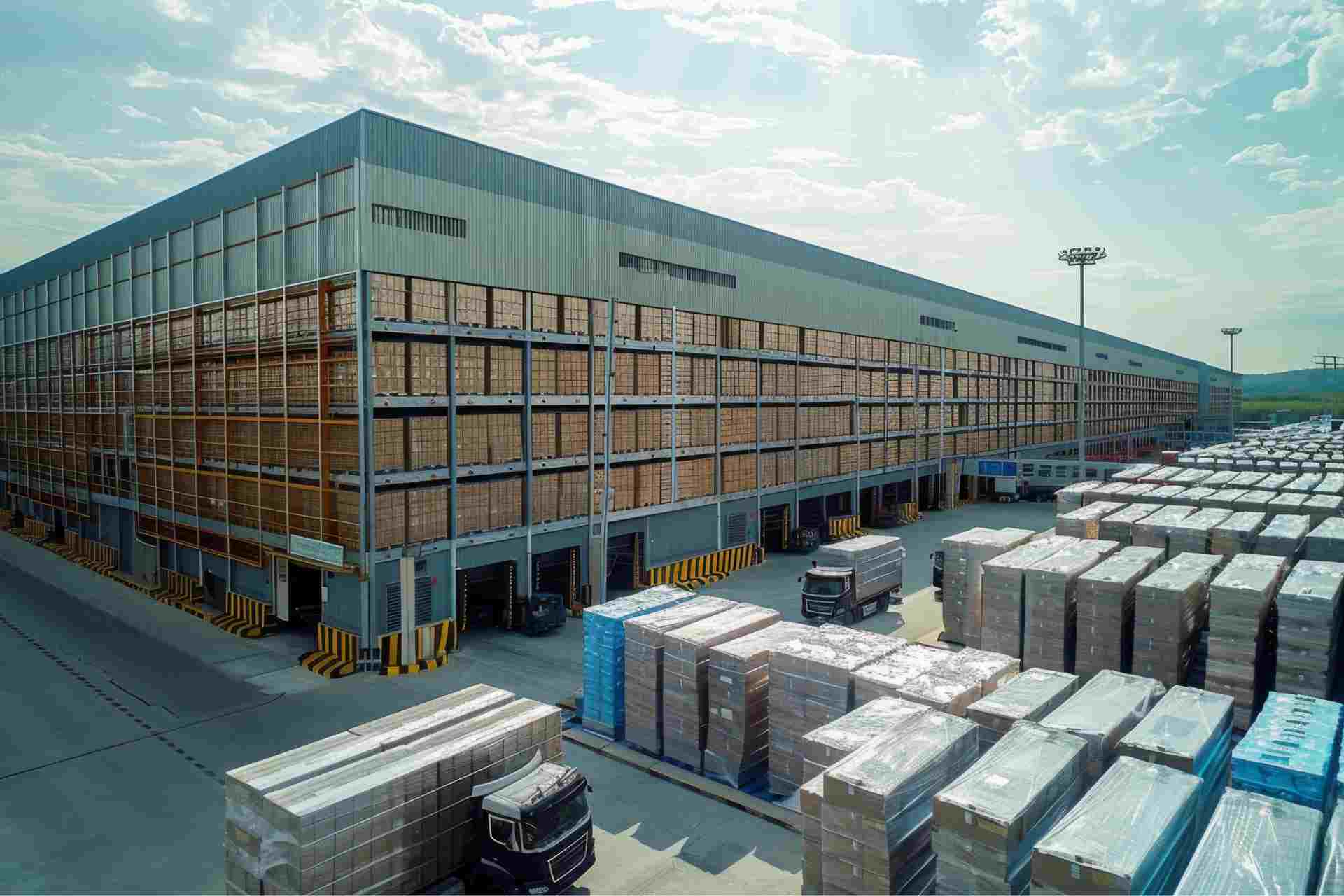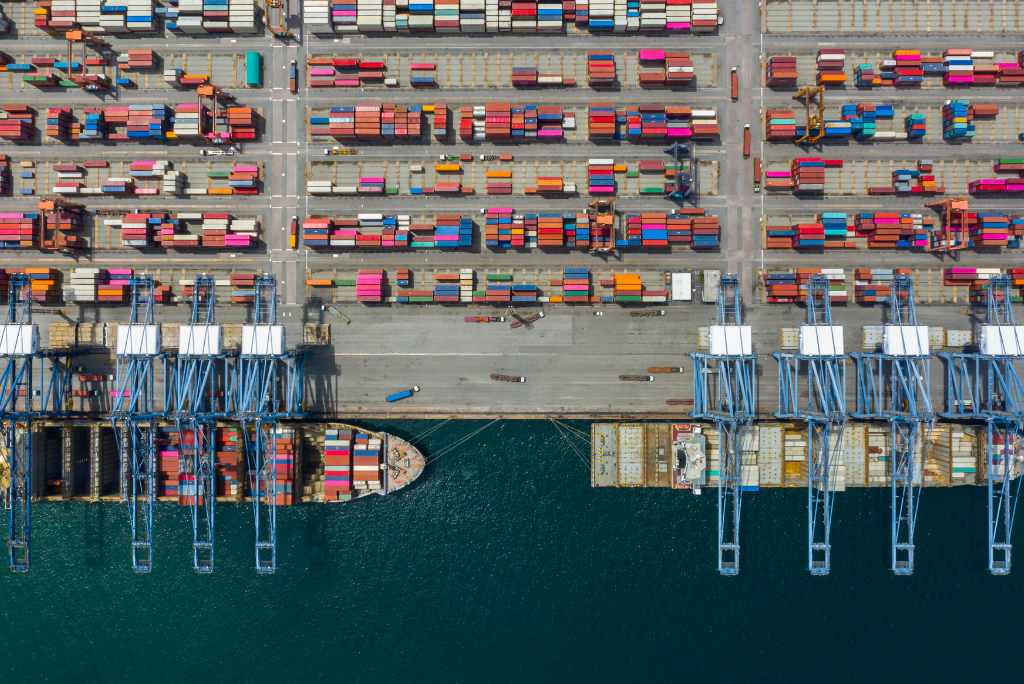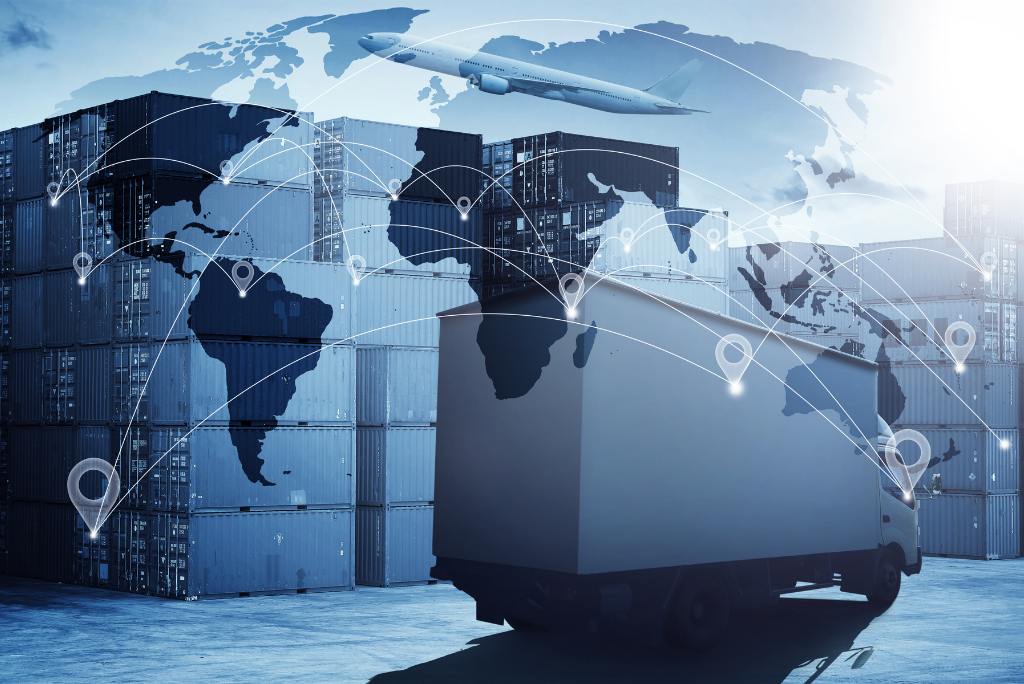
The warehousing landscape in Africa is shifting fast. E‑commerce is exploding, from $317 billion in 2024 to over $1 trillion by 2033, growing at a projected CAGR of 13.8 % (IMARC Group). Warehousing isn’t just storage anymore, it’s strategic infrastructure for brands, SMEs, and investors looking at real investment opportunities in Africa.
According to Grand View Research, the Middle East & Africa logistics market, with warehousing as a key growth segment, is expected to grow from approximately $471 billion in 2024 to $680 billion by 2030, at a CAGR of about 6.3 %.
In South Africa, refrigerated and cold‑storage warehousing is among the fastest‑growing segments, with demand driven by food, pharmaceutical, and e‑commerce sectors (Grand View Research).
What this really means: Africa is attracting capital, expansion, and attention. Governments are building logistics corridors. Private firms are racing to build Grade‑A parks and scale fulfillment tech. In Ivory Coast, Africa Global Logistics has announced plans to invest over €60 million in inland dry warehousing and cooling hubs over the next five years, with projected port traffic expected to rise by 50 % to about 1.8 million TEUs by 2025 (Reuters).
Let’s break it down—these are the five top warehousing players in Africa today:

Imperial operates in 26 countries across Africa. As of 2025, Imperial Logistics operates extensive warehousing facilities across South Africa, Nigeria, Ghana, and Kenya, integrating storage with transportation and supply‑chain visibility. Backed by DP World, it remains one of Africa’s largest logistics providers. Backed by DP World, it’s integrated logistics, warehousing and real‑time visibility. In Nigeria alone it has created logistics value worth R145.9 billion and saved NGN 619.8 million in healthcare supply channels. It remains the largest by scale and influence.
Operating in 46 African countries with hundreds of sites and thousands of staff, Bolloré Logistics is rebranding under CEVA Logistics following its acquisition by MSC Group. Bonded warehouses, cold‑chain operations, value‑added services and dry ports are core strengths. Their inland container depots and major port terminals place them at trade‑corridor hubs.
GIGL is a fast‑growing 3PL focused on tech‑enabled warehousing and fulfillment. Its GIGGo app offers real‑time warehousing, pickup, storage and last‑mile delivery. It expanded into Ghana and the U.S., and serves SMEs and e‑commerce at scale
A listed Nigerian firm since 1992, ISO‑certified and deeply embedded in logistics and fulfillment. It bridges e‑commerce, FMCG, freight forwarding and customs clearance with local insights and formal rigor. It’s a go‑to fulfillment partner for Nigerian retailers.
These startups demonstrate business opportunities in Africa, they address fragmented demand with flexible services that legacy players can’t match.

Companies like Imperial and Bolloré are central to cross‑border logistics that underpin the AfCFTA trade corridors. They anchor logistics infrastructure across Africa at institutional scale.
Startups are nimble. They scale fast. Their models- asset‑light, app‑driven, warehouse‑marketplace are ideal for SMEs and digital commerce. That’s investment opportunities in Africa you don’t see in traditional markets.
Smart warehousing technologies, including IoT, robotics, and AI are projected to reach $3.5 billion in the MEA region by 2030, growing at a CAGR of about 13.1 % from 2024 (Grand View Research). AI‑driven warehousing is forecast to grow at over 26 % annually in the region between 2025 and 2030.
Investment into ports, dry ports, logistics parks and FTZs, like Ethiopia’s Dire Dawa Free Trade Zone and Ivory Coast hubs—boost warehousing demand in regions previously underserved.
| Category | Key Players | Why It Matters |
| Enterprise-scale integrated 3PL | Imperial, Bolloré | Reach across 25–46 countries; backbone of commodity & retail logistics |
| Fast-growth, tech-led startups | Renda, Haul247, Flextock | Agile, SME‑focused, digital-first; ideal for e‑commerce brands |
| National champions | GIGL, Red Star Express | Local expertise, formal compliance, e‑commerce & FMCG logistics |
| Infrastructure enablers | Africa Global Logistics (Abidjan hub) | Port-to-dry‑storage integration expanding inland warehousing |
If you want to invest in Africa, warehousing logistics is an area brimming with potential. The macro tailwinds are real: booming e‑commerce, growing middle classes, trade infrastructure expansion and burgeoning local enterprise. On the ground, you’ll see major players and startups racing to capture market share and modernize supply chains.
Smart capital will focus on firms that combine scale, digital visibility, and alignment with growth corridors. Whether you’re evaluating acquisition targets or pipeline investment in startups, warehousing is one of the most tangible investment opportunities in Africa right now.
Sources:
Grand View Research
Top 10 Warehousing Companies in Africa in 2025
africanexponent.com
en.wikipedia.orgreuters.com
1. Which is the biggest warehouse in Africa?
As of 2025, one of the largest single warehousing complexes is Imperial Logistics’ flagship facilities in South Africa, covering over 900,000 m² across multiple high‑spec hubs. In terms of sheer single‑site scale, Kenya’s Tatu Industrial Park and South Africa’s Gauteng distribution centers host massive Grade‑A warehouses used by FMCG and retail giants. These aren’t just big, they’re automated, climate‑controlled, and connected directly to transport corridors.
2. What are the top logistics companies?
Pan‑African leaders include Imperial Logistics (backed by DP World), Bolloré Logistics (now part of CEVA/MSC), DHL Global Forwarding, and Africa Global Logistics. Regionally, players like GIG Logistics, Red Star Express, and McDan Group dominate national markets. Together, they run thousands of kilometers of transport networks and millions of square meters of warehousing.
3. Which company is best for logistics?
“Best” depends on your needs. For continental reach and integrated services, Imperial Logistics and Bolloré Logistics are hard to beat, they offer freight, bonded storage, and value‑added distribution in 25+ countries. For agile e‑commerce and SME fulfillment, tech‑enabled firms like Flextock, Renda, and Haul247 bring flexibility and speed you won’t get from old‑guard operators.
4. What is the most valuable logistics company?
Globally, DHL (Deutsche Post) leads the valuation charts. In Africa, while exact valuations aren’t always public, Imperial Logistics, especially post‑acquisition by DP World, holds significant market value and assets. Bolloré’s African network, now under CEVA, is also considered one of the continent’s most valuable logistics infrastructures due to its port terminals and inland hubs.
5. Which African countries have the best warehousing infrastructure?
South Africa leads with extensive Grade‑A facilities, strong cold‑chain networks, and advanced automation adoption. Kenya follows with hubs like Nairobi’s JKIA freight precinct and Tatu City’s industrial park. Nigeria has seen rapid warehousing growth in Lagos and Abuja, while Egypt and Morocco offer modern facilities tied to major port complexes, making them hotspots for regional distribution.

Introduction Africa isn’t just building financial systems, it’s rewriting how finance reaches millions who were never banked in the first place. For decades, large segments of the population operated outside formal financial networks, relying on cash and informal savings groups. That reality is shifting fast. Traditional banks are expanding their footprint. Fintech players are scaling […]

Solar panels scale quickly and cheaply. Wind farms require larger bets and longer timelines. But which sector is actually growing faster across Africa, and where should capital flow? Africa holds some of the world’s richest solar irradiation and strong wind corridors, yet its installed renewable base remains modest compared to potential. For investors scanning investment […]

Introduction Choosing impact over pure returns, or the other way round, changes everything. Not just how you deploy capital, but how you define success, patience, and even risk. Africa makes that choice sharper than most emerging regions due to its mix of high-growth sectors and persistent development gaps. The continent offers some of the world’s […]